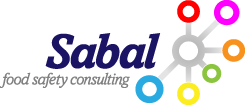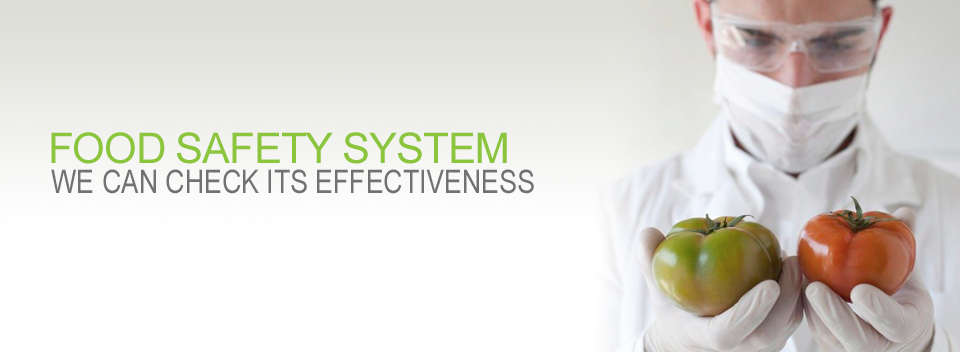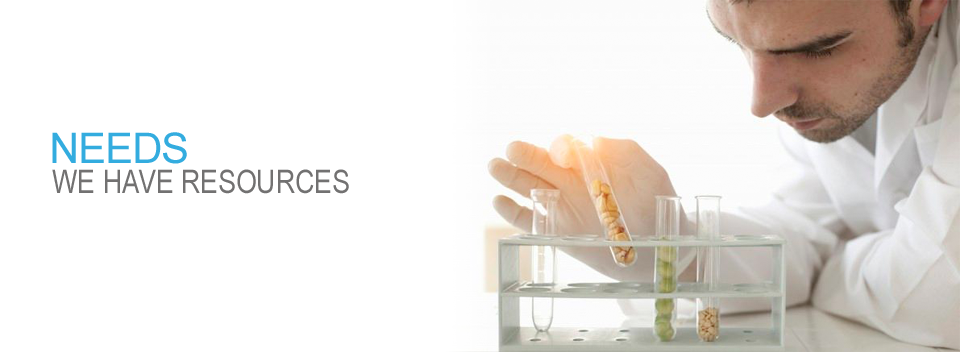Who are we?
A group of dedicated people providing support to the food and beverage processing and manufacturing industry as well as farms growing, harvesting and packing food products and farms raising animals. We have “hands-on experience” that allows us to understand the hazards and the risks associated with your processes and pre-requisite programs and, identify, develop and implement procedures to control them effectively. We provide consulting, training and auditing food companies around the world since 1992. Check the Testimonials and see why so many companies trust on our services.
We are now ready to teach and help with the implementation of the NEW Hazard Analysis and Preventive Controls for Human Food class following the standardized curriculum approved by the FDA and developed by the Food Safety Preventive Controls Alliance (FSPCA). Contact us today to schedule your in-house training!
We currently have the ability to train people on the following FSMA rules:
- Preventive Controls for Human Food (PCHF)
- Preventive Controls for Animal Food (PCAF)
- Produce Safety rule (Grower Training)
- Foreign Supplier Verification Program (FSVP)
- Seafood HACCP
- Juice HACCP
- International HACCP Alliance, HACCP Training (For FSIS/USDA regulated facilities)
- Also, many other trainings as described in the "Training" menu.
All trainings can be performed in English or Spanish and by using Zoom for the virtual instructor led (VILT) courses.
Do you need an agent to help you with the importation of food regulated by the FDA under the Foreign Supplier Verification Program regulation? Contact us to discuss your needs!
Quote
Failing to prepare is equal to preparing to fail
"The great enemy of the truth is very often not the lie, deliberate, contrived, and dishonest, but the myth, persistent, persuasive, and unrealistic." - John F. Kennedy
Everything should be made as simple as possible, but not simpler. Attributed to Albert Einstein
Recent Testimonials
"One of the best, if not the best instructor on food safety that I have ever had. He is very engaging and dynamic" January 2023 / PCHF
"Jose was best instructor I've had in 20 yrs of various food safety training I've attended. He is engaging and animated in his delivery. Extremely knowledgeable and had no hesitation or uncertainty in his delivery or response to questions" January 2023 / PCHF
"Jose was an excellent instructor and took time to explain the topics thoroughly. He took time to answer every question and made sure that there were no questions left unanswered before moving on. Foreign Supplier Verification Program virtual-live course on September 13th, 2021. Kelly S.
"AWESOME INSTRUCTOR". Seafood HACCP, Segment 2 virtual-live on August 23rd, 2021. Lindsey K.
"Very informative instructor, used real life examples and followed the book slides with in-depth information". Preventive Controls for Animal Food virtual-live course on June 16th, 2021. Nicole H.
"Jose- so nice to personally meet you today. How valuable of a training you conducted. You really made things clear and truly gave me a better understanding of what we need . Thank you for everything.!" Linda Zilka / May, 2020
Recent News and Updates
July 2023 - Updated the links to the registers or directories of certified sites against BRCGS, FSSC 22000 and SQFI. Go to the links' section to check them out.
January 2023 - Frank Yiannas resigns from his job at the FDA.
Implementation of FSMA regulations
November 2022
FSMA rule # 8: FSMA Final Rule: Requirements for Additional Traceability Records for Certain Foods
Compliance date: January 20th, 2026
https://www.ecfr.gov/current/title-21/chapter-I/subchapter-A/part-1/subpart-S?toc=1
June 14th, 2018
FSMA-Draft Guidance: Hazard Analysis and Risk-Based Preventive Controls for Food for Animals: Supply-Chain ProgramGuidance for Industry
The purpose of this guidance is to help a receiving facility comply with the requirements of 21 CFR part 507, subpart E of the preventive controls for animal food (PCAF) regulation for establishing and implementing a supply-chain program for its suppliers. This guidance also is intended to help an entity other than the receiving facility conduct certain activities on behalf of a receiving facility, provided that the receiving facility complies with applicable requirements in subpart E to review and assess the entity’s applicable documentation, and document that review and assessment.
January 19th, 2018
FSMA-Draft Guidance: Hazard Analysis and Risk-Based Preventive Controls for Food for Animals
In Title 21 of the Code of Federal Regulations (21 CFR) part 507 (part 507), we have established our regulation entitled “Current Good Manufacturing Practice, Hazard Analysis, and Risk-Based Preventive Controls for Food for Animals”. This guidance document focuses on subpart C, the primary preventive controls requirements, and also discusses relevant recordkeeping requirements of subpart F. Although subpart E, the supply-chain program, is a type of preventive control, we intend to address subpart E in future guidance.
August 7th, 2017
Seafood HACCP and the FDA Food Safety Modernization Act: Guidance for Industry
FSMA recognizes that FDA has previously established a preventive control type regulation for fish and fishery products (Title 21, Code of Federal Regulations (21 CFR) part 123, the seafood HACCP regulation) based on the Hazard Analysis and Critical Control Point (HACCP) concept. This guidance document focuses on subpart C, the primary preventive controls requirements, and also discusses relevant recordkeeping requirements of subpart F. Although subpart E, the supply-chain program, is a type of preventive control, we intend to address subpart E in future guidance.
FSMA recognizes that FDA has previously established a regulation that addresses biological hazards unique to low-acid foods packaged in hermetically sealed containers (i.e., “low-acid canned foods,” hereinafter referred to as LACF) 2 (Title 21, Code of Federal Regulations (21 CFR) part 113). Importantly, several of the regulations that FDA has issued under FSMA provide exemptions that are related to the LACF requirements in part 113. This guidance addresses those exemptions,3 and also provides information about the LACF regulation in part 113 in connection with the following FSMA regulations:
- 21 CFR part 117, Current Good Manufacturing Practice, Hazard Analysis, and Risk- Based Preventive Controls for Human Food (the CGMP & PC Regulation)
- 21 CFR 1, subpart L, Foreign Supplier Verification Programs for Importers of Food for Humans and Animals (the FSVP Regulation)
- 21 CFR 112 ,Standards for the Growing, Harvesting, Packing, and Holding of Produce for Human Consumption (the PS Regulation)
- 21 CFR part 121, Mitigation Strategies To Protect Food Against Intentional Adulteration (the IA Regulation)
- 21 CFR 1, subpart O, Sanitary Transportation of Human and Animal Food (the ST Regulation)
Juice HACCP and the FDA Food Safety Modernization Act: Guidance for Industry
FSMA recognizes that FDA has previously established preventive control type regulations for juice (Title 21, Code of Federal Regulations (21 CFR) part 120, the Juice HACCP regulation) based on the Hazard Analysis and Critical Control Point (HACCP) concept. The juice HACCP regulation requires juice processors to identify food safety hazards that are reasonably likely to occur with the products they process2 and to develop plans for the control of those hazards. In addition, the juice HACCP regulation requires importers of certain juice products to comply with requirements designed to help ensure that these imported products are processed in accordance with the juice HACCP regulation.
May 1st, 2017
Release of the "Food Safety On-Demand" consulting service. NEW! Search for more information in the "Consulting" link.
March 20th, 2017
FSMA - FDA Considering Simplifying Agricultural Water Standards
The U.S. Food and Drug Administration (FDA) is exploring ways to simplify the microbial quality and testing requirements for agricultural water established by the Food Safety Modernization Act’s (FSMA’s) produce safety rule while still protecting public health.
February 28th, 2017
GFSI Releases New Edition of Benchmarking Requirements. The Global Food Safety Initiative (GFSI) today announced the publication of its highly-anticipated 7th version of the industry-acclaimed GFSI Benchmarking Requirements, previously known as the GFSI Guidance Document.
GFSI Benchmarking Requirements / Guidance Document. This multi-stakeholder document provides guidance on food safety requirements and management. It is science-based and aligned with the CODEX internationally-recognised food safety standards. The document underpins GFSI’s benchmarking process, which promotes harmonisation by establishing equivalency between food safety management schemes. The new edition adopts a fresh modular approach designed to better meet the needs of schemes applying for benchmarking.
February 27th, 2017
- Accredited Third-Party Certification Rule
- Supplier Verification in the Foreign Supplier Verification Program (FSVP) and Preventive Controls (PC) Rules
- Potential for Leveraging Audits in Produce Rule Compliance Strategies
The FDA released an update on each of the three topics above. Looks like the "On-Site" audits will also apply to the Produce rule.
November 2016
Voluntary Qualified Importer Program: Guidance for Industry
This guidance document describes FDA’s policy regarding participation in FDA’s Voluntary Qualified Importer Program (VQIP) by importers of food for humans or animals.
October 16th, 2016
What to Expect Now that the First Big FSMA Compliance Dates Are Here
August 24th, 2016
FSMA - Draft Guidance for Industry: Hazard Analysis and Risk-Based Preventive Controls for Human Food
FSMA - Extension and Clarification of Compliance Dates for Certain Provisions of Four Implementing Rules
The FDA published this provision with clarifications and extensions of some of the compliance dates described below.
FSMA - Clarification of compliance dates on four of the seven rules - Federal Register notification
May 27th, 2016
FSMA rule # 7: The "Focused Mitigation Strategies to Protect Food Against Intentional Adulteration" has been finalized and published in the Federal Register, Volume 81, number 34165 (81FR 34165) / 21 CFR 121.
Compliance dates: (Exemptions are described in 21 CFR 121.5)
- Very Small Businesses (A business (including any subsidiaries and affiliates) averaging less than $10,000,000, adjusted for inflation, per year, during the three-year period preceding the applicable calendar year in sales of human food plus the market value of human food manufactured, processed, packed, or held without sale): May 2021.
- Small Businesses (A business employing fewer than 500 persons): May 2020
- Other Businesses (A business that is not small or very small and does not qualify for exemptions): May 2019
April 6th, 2016
FSMA rule # 6: The "Sanitary Transportation of Human and Animal Food" has been finalized and published in the Federal Register, Volume 81, number 20091 (81 FR 20091) / 21 CFR 1, Subpart O.
Compliance dates:
- Small business (businesses other than motor carriers who are not also shippers and/or receivers employing fewer than 500 persons and motor carriers having less than $27.5 million in annual receipts): April 2018.
- Other businesses (a business that is not small and is not otherwise excluded from coverage): April 2017
November 27th, 2015
FSMA rule # 3: The "Standards for the Growing, Harvesting, Packing, and Holding of Produce for Human Consumption: Final Rule" was published in the Federal Register, Volume 80, Number 228 (80 FR 74547) / 21 CFR 112.
Compliance dates for covered activities, except for sprouts or exempted facilities (See "Extension and Clarification of Compliance" under August 24th update above):
- Very small businesses (Average annual sales in the previous three years between $25,000 and $250,000): November 2019
- Small businesses (Average annual sales in the previous three years between $250,000 and $500,000): November 2018
- Other (Sales of more than $500,000): November 2017
FSMA rule # 4: The "Foreign Supplier Verification Programs (FSVP) for Importers of Food for Humans and Animals: Final Rule" was published in the Federal Register, Volume 80, Number 228 (80 FR 74340) / 21 CFR 1, Subpart L.
Compliance date is the lates of the following:
- 18 months after publication of the final rule: June 2017
- For the importation of food from a supplier that is subject to the preventive controls or produce safety rules, six months after the foreign supplier is required to meet the relevant regulations.
- For an importer that is itself a manufacturer or processor subject to the supply-chain program provisions in the preventive controls regulations, the date by which it has to comply with those provisions.
FSMA rule # 5: The "Accreditation of Third-Party Certification Bodies to Conduct Food Safety Audits and to Issue Certifications: Final Rule" was published in the Federal Register, Volume 80, Number 228 (80 FR 74650) / 21 CFR 1, Subpart M.
Compliance dates
- FDA intends to implement this program as soon as possible after publication of the final Model Accreditation Standards guidance, and the final user fee rule, both of which will be published separately.
- Accreditation bodies could begin to apply for recognition when the program goes into effect, and third-party certification bodies could seek accreditation after one or more FDA-recognized accreditation bodies begin accepting applications.
September 17th, 2015
FSMA rule # 1: The "Current Good Manufacturing Practice, Hazard Analysis, and Risk-Based Preventive Controls for Human Food; Final Rule" was published in the Federal Register, Volume 80, Number 180 (80 FR 55907) / 21 CFR 117.
Compliance dates:
- Companies with more than 500 employees: September 19th, 2016
- Companies less than 500 employees (Small companies): September 19th, 2017
- Companies with less than $1 million/year (Very small companies): September 19th, 2018.
FSMA rule # 2: The "Current Good Manufacturing Practice, Hazard Analysis, and Risk-Based Preventive Controls for Animal Food; Final Rule" was published in the Federal Register, Volume 80, Number 180 (80 FR 56169) / 21 CFR 507.
Compliance dates for the implementation of the Current Good Manufacturing Practices as follows:
- Companies with more than 500 employees: September of 2016.
- Companies with less than 500 employees (Small business): September of 2017.
- Companies with sales of less than $2.5 million/year (average in the last three years): September 2018.
Compliance with the Preventive Controls as follows:
- Companies with more than 500 employees: September of 2017.
- Companies with less than 500 employees (Small business): September of 2018.
- Companies with sales of less than $2.5 million/year (average in the last three years): September 2019.
Want more FSMA information?, go to the FSMA Rules & Guidance for Industry
Other Topics
Check our "Links" menu as we have gathered a large amount of domestic and international web pages related to food safety and how to develop systems to manage it.
Join us by registering as a member of our community. We’ll have discussions about food safety issues and you may find it useful for maintaining your food safety system. You could also check our store and search for documents and register for trainings. Should you want to read a little more, check our free content by clicking on the "Other Services" menu and then, click on the "Blog" menu.













